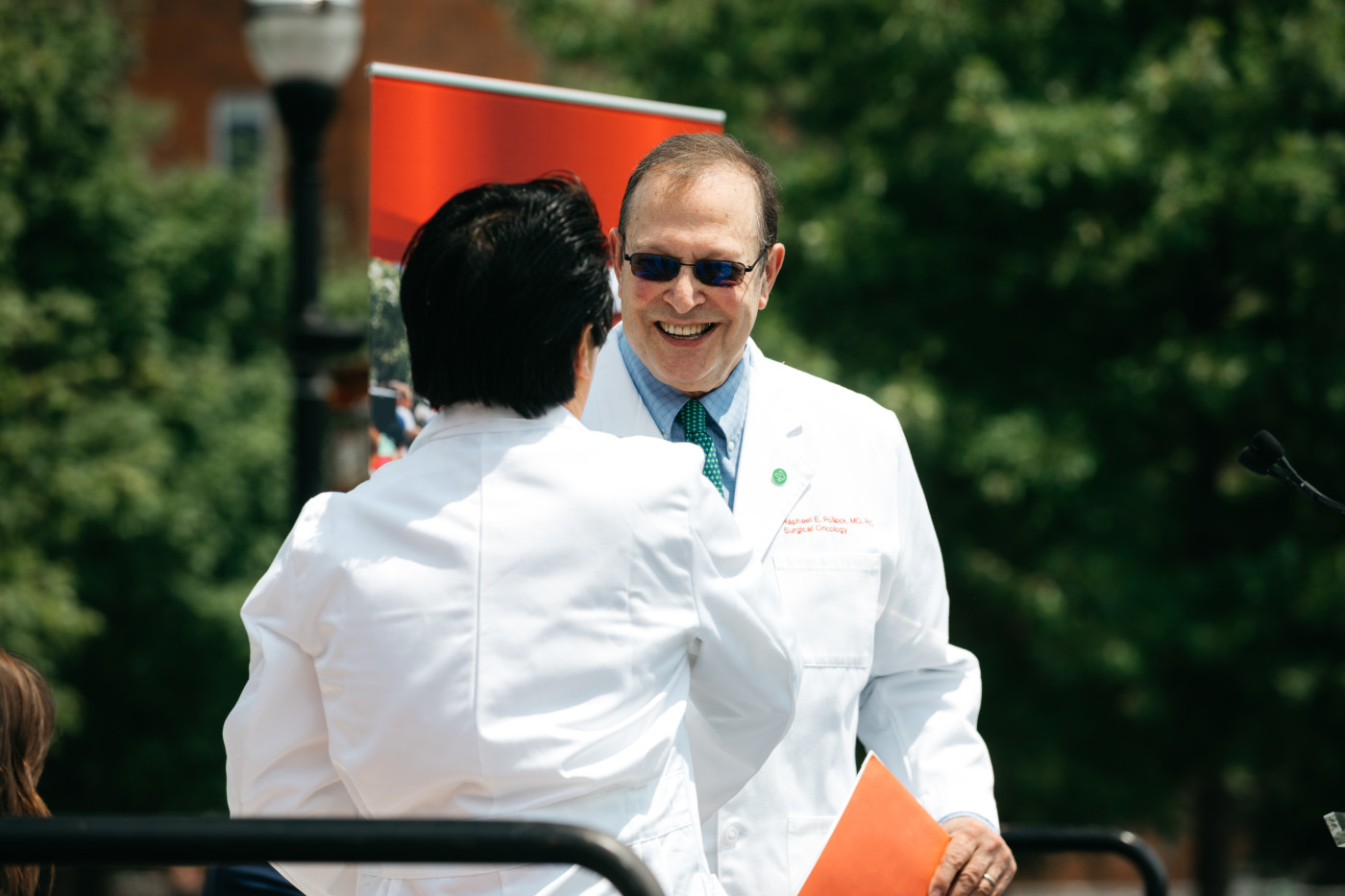People We've Impacted
A Letter from Dr. Raphael Pollock for National Cancer Survivors Day
By Dr. Raphael Pollock|June 07, 2020

By Dr. Raphael Pollock, Director, The Ohio State University Comprehensive Cancer Center
June 7, 2020
On the first Sunday of June, we celebrate National Cancer Survivor’s Day— a day meant to show the world that life after a cancer diagnosis can be fruitful, rewarding, and inspiring. I have a unique perspective on this issue because I am a cancer surgeon and researcher but I am also a cancer survivor, directly impacted by the cancer research conducted at The Ohio State University Comprehensive Cancer Center (OSUCCC).
As the Director of The OSUCCC, I see firsthand the importance of funding basic, translational, clinical and population cancer research that will ultimately lead to better outcomes for our community by creating more survivors. And as a cancer survivor myself, I am gratefully aware that life after a diagnosis is made possible by these research efforts.
I am also a surgical oncologist who has been privileged to care for thousands of cancer patients and acknowledge their courage in confronting these diseases. I specialize in treating soft tissue sarcomas and have frequently operated within the deepest reaches of the abdomen. While I was intimately familiar with the signs and symptoms of cancer in this area, it came as a surprise to be diagnosed as having chronic lymphocytic leukemia after emergency surgery at the James Cancer Hospital in which my spleen, about to rupture due to leukemic infiltrates with abscess formations, had to be removed. I was very fortunate to qualify for a clinical trial evaluating targeted leukemia therapy involving ibrutinib, a new drug primarily developed and validated in clinical trials conducted right here in Columbus at Ohio State.
My survivorship has depended upon innovative cancer research efforts. I am so grateful to work closely with organizations like Pelotonia, a nonprofit that accelerates funding for innovative cancer research and commits 100% of every rider- raised dollar to cancer research at Ohio State. Since 2009, Pelotonia has raised more than $209 million for high-risk, high-reward research that can lead to significant additional funding investments and, eventually, proven treatments that dramatically improve people’s lives.
Pelotonia helped fund the first clinical trials at Ohio State to test ibrutinib, the drug that I now take twice daily. Ibrutinib works by blocking specific growth signals on the surface of leukemia cells that enable these cells to survive and grow. This therapy has remarkably improved my personal situation; although I still have active disease in the central part of my body, I am living nearly symptom-free. I will continue to take this drug, in all likelihood for the rest of my life. Thanks to Pelotonia’s initial investment that led to this groundbreaking therapy, I am now able to live in balance with my cancer while pursuing my deep personal aspirations to care for cancer patients—a possibility that would have been improbable just a decade ago.
As the global scientific community shifts its focus to the important work of navigating through and overcoming COVID-19, it is paramount to ensure that scientific discovery continues in cancer. Sustained research funding is under persistent threat and this is a rate-limiting factor to scientific progress. A researcher may have a brilliant idea, but without funding that idea cannot be explored further to determine its potential applicability at the patient’s bedside.
Pelotonia and other events that fund cancer research will not be able to hold to their traditional rosters of activity this year due to the pandemic, such as the three-day ride weekend. However, there are many other activities that are possible! Now is the time to innovate while remaining steadfast in our pursuit of one goal – to end cancer – and create a cancer-free world. Pelotonia has pivoted to a participant-driven model that encourages cancer advocates to define their own goals and continue fundraising this year. Now more than ever, we must all innovate in new ways to help.
I wake up excited by the promising future of cancer research, and on National Cancer Survivor’s Day, I am proud to join 16.9 million others in celebrating life after this diagnosis. Today is a unique opportunity to inspire momentum for the critical work still ahead–there are so many for whom a groundbreaking treatment such as ibrutinib simply did not exist when it was needed. Please join me in supporting the efforts to fund the promising and innovative cancer research that can lead to the therapies that we all will need someday, for ourselves and those whom we care about!
2281 Kenny Road, Suite 450, Columbus, Ohio 43210 | 614.221.6100
© 2025 Pelotonia. All rights reserved.
Major Funding Partners





